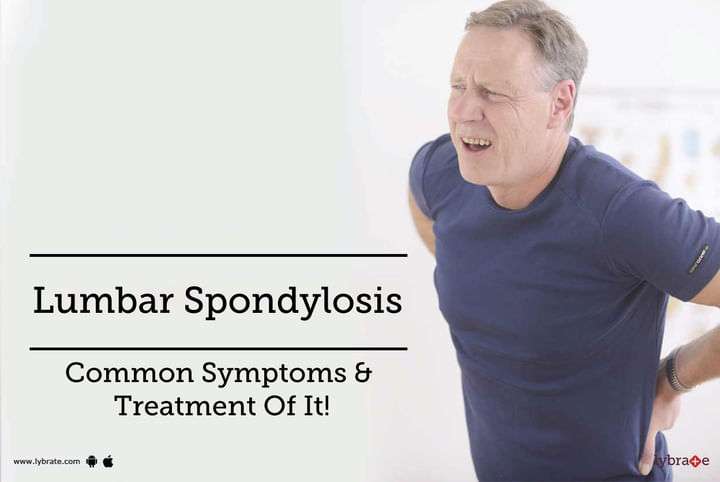Lumbar Spondylosis - Common Symptoms & Treatment Of It!
As you age, your body and bones start to grow weaker. You may experience a number of health disorders that you did not suffer from before. These are known as degenerative diseases. Such conditions also affect the spinal region of a person. The degenerative diseases that affect the spine are termed as lumbar spondylosis.
What causes spondylosis?
Here are some known causes and risk factors for spondylosis-
• The bone, ligaments and other connective tissues in the spine wear down with age. Additionally, the intervertebral discs also undergo degeneration. This can lead to bulging discs and even herniation.
• Apart from your age, your genes also play a role in spondylosis. People who have a family history of the condition are more likely to suffer from the disorder.
• Lastly, if you have suffered from an injury to the spine, spondylosis is much more likely. It does not develop as soon as the spine is injured, but may gradually appear over a period of years.
Common symptoms of spondylosis:
Symptoms differ from one patient to the next and some people may not experience any effect of the disease. However, symptoms are present if the herniation or slipped disc leads to excessive pressure on the nerves.
• The most common symptoms of lumbar spondylosis are back and neck pain
• In case the spondylosis results in a pinched nerve, the pain may radiate into the legs and arms
• Other minor symptoms of spondylosis include tingling, weakness and numbness
Treatments for spondylosis:
Spondylosis cannot be cured. However, symptoms can be managed using medications and therapies.
• Pain medications - Non-steroidal anti-inflammatory drugs are prescribed to deal with the pain and discomfort from the degenerative disorder.
• Antidepressants - Some antidepressants are useful in treating the pain associated with spondylosis. However, these medications have side effects. This is why it is wise to consult a doctor before consuming them.
• Topical medication - In some cases, topical medication applied directly at the site of the pain is more effective than oral pain medications.
• Physical therapy - Your doctor may recommend physical therapy for you as well if the spondylosis is severe and is interfering with daily life.
Acupuncture and chiropractic practices can also help deal with the discomfort to some extent. Furthermore, exercise relieves some pressure on pinched nerves, reducing the pain.



+1.svg)
